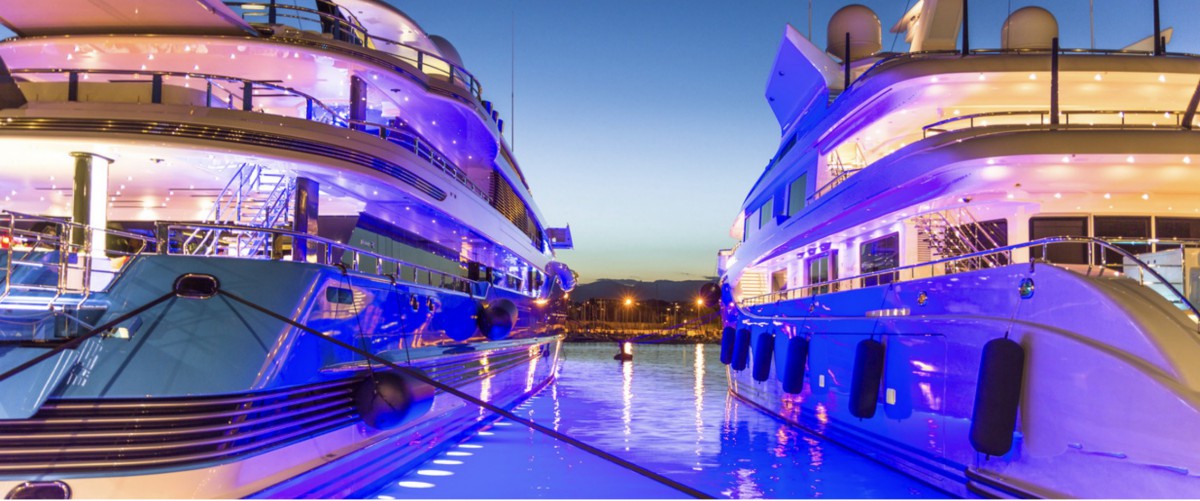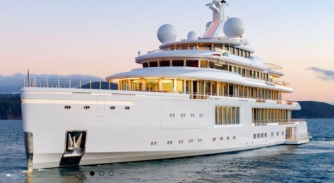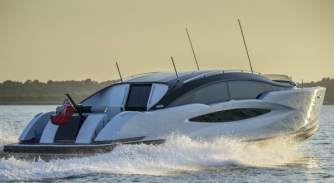Retention on the rise
Kelsey Purse and Mark Charman of Faststream Recruitment dissect the results of their Superyacht Captain’s Survey…

Superyacht captain retention is on the rise, with fewer planning to change jobs this year, according to survey findings from Faststream Recruitment. The maritime crew recruitment firm’s Superyacht Captain Report survey spanned five weeks and garnered participation from 191 captains. Whilst the results point to an active increase in retention, the decline in career longevity and lack of quality talent allude to problems in the near future.
“What is really interesting about this survey is that it given captains a chance to look inwards for once, rather than be focussed on their crew or guests,” Kelsey Purse, Director of Shipping, Faststream tells SYN. “The standout statistic from that is if you look at the retention rates, it shows more captains are looking to stay in their jobs, and that is a complete contrast to the rest of the maritime sector.”
Crew retention is a priority focus within the industry, and retaining superyacht captains is no exception. The upward curve of retention continues with a decrease in job seeking from 53% in 2021 to 40% this year. 34% wanted a new job on another superyacht, 6% desired a shore-based job within the superyacht industry, 1% were planning to retire and the remaining 59% plan to stay loyal to their employer.
“Yacht owners and management companies are in an enviable position according to these results, compared to many other maritime sectors. Growing retention rates create less pressure to hire experienced and reliable senior talent,” says Mark Charman, CEO and Founder, Faststream.
Notably, Faststream recruits for cruise, tanker, offshore, and merchant vessels. “In all these sectors, we see a vast number of candidates actively looking for new opportunities. Whereas captains in the superyacht industry, tend to stay loyal and that trend continues to flow,” adds Purse.
One of the big changes noticed in the survey is ‘work-life balance’, taking precedence over crew retention or bonuses for the first time. “Not only is work-life balance featuring as the top job-seeking motivator and loyalty factor but also their top priority at work,” says Charman. “Captains are looking for a positive work-life balance – this does not mean that they don’t want to work hard, rather they don’t want it to negatively affect their personal life overall.”
Purse agrees. “Captains have realised that they can’t pour from an empty cup. It’s lonely at the top, and you have to look after number one,” she says. “Let’s face it, they are a parental figure to many of the junior crew. They are in a position of power and authority, and most of the time, happiness onboard starts with them. So, ensuring they lead from the front with good mental health should make for a happier crew too.”
Naturally, in any competitive industry, money plays a large factor when choosing a job. Around 58% of captains received a salary increase within the past two years, but changing jobs proved more lucrative, as those who did so were more likely to secure a 10% or higher pay raise (52%) compared to those who stayed with their current employers (24%).
A key element of the survey’s findings is that the long-term career outlook for captains has declined, as only 69% believe their careers won’t will last over five years, down from 88% in 2017. “There is a huge draw, not only within the superyacht sector but the wider maritime community to draw upon the talents of a captain,” says Purse.
“So, there are more options for captains to transition to onshore executive roles. They recognise their career doesn’t have to end with being a captain.” This is particularly attractive for captains who want to spend more time with friends and family, rather than at sea. Despite this, 91% express satisfaction with their career choice and would recommend it to younger individuals, indicating positive advocacy for the industry.
However, only 7% of captains believe that young people consider a career in the superyacht sector as a long-term path, while 91% believe that social media and reality TV mislead new generations about yachting careers.
“I like to call Generation Z by another name, Generation Choice,” says Charman. “Career options are nearly limitless for these people. The Institute for the Future (IFTF) predicts that 85% of the jobs in 2030 have yet to be created. Not only is the superyacht sector competing against other industries and professions today but also potential new jobs we don’t even know about yet.”
Hiring and retaining crew members has also been challenging for three-quarters of respondents in the past year, with many struggling to keep talent for more than three years. Purse adds that she estimates a 20/80 split on crew aspiring for a career in yachting to those who see the industry as a prolonged gap year.
Captains frequently grapple with personnel management and guest satisfaction as top stress factors, underscoring the complexities of managing people and ensuring guest happiness. The most desired working pattern is a 2/2 rotation, although fewer than half of captains currently have this schedule. This, along with a decrease in longevity amongst experienced captains and a lack of ambitious talent accumulates to a shortage of captains for an ever-growing fleet and signals warning signs of the near future.
“This is why it is imperative to retain crew, but also attract new prospective career-driven professionals,” says Purse. “There is so much innovation in the industry concerning propulsion, sustainable fuels and even AI. This is what needs to be stressed when securing pools of talent for the future.
“This is why when captains speak, we must listen. There are so many crew now who don’t want to become captains because it's such a pressurised job. You can already see this by the age profile and demographics. If we don’t act on the warning signs, then absolutely predict that there will be a shortage of captains in the years to come.”
Click here to read Faststream Recruitment’s full Superyacht Captain Report.
Profile links
NEW: Sign up for SuperyachtNewsweek!
Get the latest weekly news, in-depth reports, intelligence, and strategic insights, delivered directly from The Superyacht Group's editors and market analysts.
Stay at the forefront of the superyacht industry with SuperyachtNewsweek
Click here to become part of The Superyacht Group community, and join us in our mission to make this industry accessible to all, and prosperous for the long-term. We are offering access to the superyacht industry’s most comprehensive and longstanding archive of business-critical information, as well as a comprehensive, real-time superyacht fleet database, for just £10 per month, because we are One Industry with One Mission. Sign up here.
Related news

Mixed messaging or meaningful change?
Megan Hickling, TSG’s new Sustainability Editor, argues that the superyacht industry should be taking major initiatives that can actually be measured
Opinion
.jpg)
The Oasis revolution
We track the history of one of the most iconic design innovations to come from Italy and ask where it’s heading next
Fleet

Burgess granted licence to pay sanctioned crew
After a protracted process, the crew of Luminosity and Alfa Nero will finally receive their pre-sanction salaries before the end of the year
Business

Brokerage readjusts to its 'old normal'
As data suggests a daunting downturn in activity, representatives from five top brokerages assess the current state of the market
Business

Crew background check service launches
SuperYacht References has launched its new platform for captains to source verified references and background checks for crew
Crew

What do you think of the tenders market?
The Superyacht Agency is investigating the current tenders market and the feasibility of foiling and other innovations in the sector
Crew
Related news
Mixed messaging or meaningful change?
2 years ago
The Oasis revolution
2 years ago
Burgess granted licence to pay sanctioned crew
2 years ago
Brokerage readjusts to its 'old normal'
2 years ago
Crew background check service launches
2 years ago
What do you think of the tenders market?
2 years ago
NEW: Sign up for
SuperyachtNewsweek!
Get the latest weekly news, in-depth reports, intelligence, and strategic insights, delivered directly from The Superyacht Group's editors and market analysts.
Stay at the forefront of the superyacht industry with SuperyachtNewsweek



